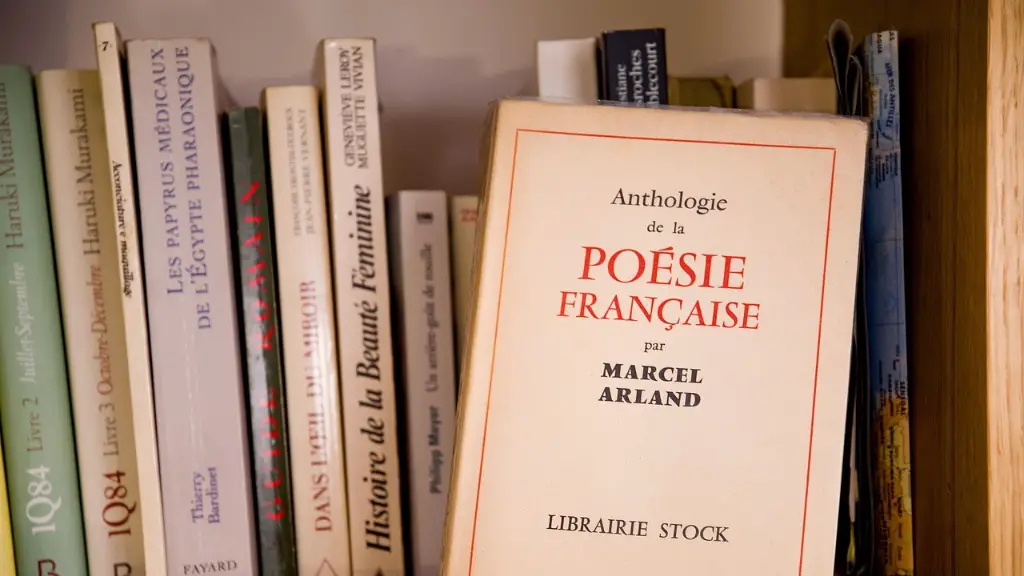William Wordsworth’s definition of poetry is “the spontaneous overflow of powerful feelings.” He believed that poetry should be written in a language that is simple and natural, and that it should be about topics that are common and familiar.
William Wordsworth’s definition of poetry is “the spontaneous overflow of powerful feelings.”
What is the meaning of Wordsworth definition of poetry?
The poet William Wordsworth defined poetry as “the spontaneous overflow of powerful feelings.” He believed that poetry should come from a place of emotion, and that it should be recollected in a state of tranquility. Wordsworth’s own poems in the book are considered to be experimental.
Nature is important for our intellectual and spiritual development according to Wordsworth. A good relationship with nature allows us to connect to both the spiritual and social worlds. As Wordsworth explains, a love of nature can lead to a love of humankind. Therefore, Wordsworth emphasizes the importance of nature in our lives.
In which text does Wordsworth’s definition of poetry appear
In his Preface to Lyrical Ballads, Wordsworth expresses his opinion about the function of a poet and the subject matter of poetry. He defines a poet as someone who is able to see the world in a different way to other people and who is able to express this vision in their writing. Wordsworth believes that the subject matter of poetry should be drawn from everyday life, as this is where the poet can really connect with their audience.
The subject matter of poetry is whatever that interests the human mind. The Lyrical Ballads are written as experiments, to try out the use of the language of conversation of real people in poetry.
What are the main features of Wordsworth’s poetry?
William Wordsworth was an English poet who is credited with helping to launch the Romantic Age in English literature. Wordsworth’s poetry is characterized by its focus on nature and the everyday lives of common people. In contrast to the complex and often difficult language of earlier poets, Wordsworth sought to use simple and easily understandable language in his poems. In doing so, he hoped to reach a wider audience and to communicate the beauty and importance of nature. Wordsworth also wrote against many of the corrupt practices of his society, such as the mistreatment of the poor and the destruction of the natural environment. His love for nature was evident in both his poetry and his personal life, as he often took long walks in the countryside and spent time in the Lake District, where he lived for much of his life.
Poetry is one of the most important forms of writing. It is vital to culture, art, and life. Poetry is an inexplicable event in language that can be experienced through words. It is a way of expressing emotions and thoughts that cannot be expressed in any other way. Poetry is beautiful, powerful, and life-changing.
What does William Wordsworth teach us?
Wordsworth’s poetry is characterized by its focus on nature and the human experience. He was heavily influenced by the scientific discoveries of his time, as well as his own unique ideas about imagination and art. Wordsworth believed that nature and the human experience were interconnected, and he sought to capture this connection in his writing.
In the Lyrical Ballads, Wordsworth writes verses that are full of emotion and describe natural scenes. In The Prelude, a much older and disillusioned Wordsworth writes very long and thoughtful reflections on the meaning of life and the poet’s place in it. The Prelude is characterized by the late Wordsworth’s didactic, almost instructional style.
What is the difference between prose and poetry according to Wordsworth
There is no essential difference between the language of prose and that of metrical composition. Rather, Wordsworth asserts that there is a perfect affinity between the two. In other words, the language used in prose can be just as effectively used in poetry.
Coleridge has some valid criticisms of Wordsworth’s poetry. He believes that Wordsworth has failed to maintain a simple language in most of his poems, and that he has totally rejected the importance of figurative expression. Coleridge feels that Wordsworth does not practice what he preaches, and this undermines his poetic authority.
What are the four stages of poetry by Wordsworth?
The first stage of the poetic process is recollection. This is when the poet accesses memories and experiences that will be used in the poem. The second stage is contemplation, in which the poet reflects on the meaning of the memories and experiences. The third stage is recrudescence, or the renewal of the original emotion. This is when the poet revisits the memories and experiences with fresh eyes, looking for new insights. Finally, the poet composes the poem, putting all the pieces together.
Great imagery is essential to creating powerful and enticing poetry. Along with the well-known writing advice to “show, don’t tell,” poetry relies on delivering vivid images to the reader. This is what makes poetry so special and attention-grabbing. So, when writing poetry, be sure to include lots of descriptive language and images to really paint a picture for the reader.
What is the most important elements of poetry
Poetry is a form of literature that uses aesthetic and often rhythmic qualities of language—such as phonaesthetics, sound symbolism, and metre—to evoke meanings in addition to, or in place of, the prosaic ostensible meaning.
The three stages of beauty are the physical, sensuous beauty of nature, the spiritual or intellectual beauty of nature, and the transcendent beauty of nature. The physical beauty of nature is what we first see and experience when we encounter a scene or object. This beauty is often fleeting, and dependent on factors such as the light, the time of day, and our own physical and emotional state. The spiritual or intellectual beauty of nature is a more lasting beauty, based on our understanding and appreciation of the underlying order, harmony, and purposefulness of the natural world. This beauty can be experienced through art, music, poetry, and philosophy, as well as through direct encounter with the natural world. The transcendent beauty of nature is a beauty that goes beyond the physical and spiritual, to a level that is numinous, awe-inspiring, and mystical. This beauty can be experienced through religious or spiritual practice, or simply through a moment of quiet contemplation in nature.
Who gave the definition of poetry?
There are many different ways to define poetry. For William Wordsworth, poetry was the “spontaneous overflow of powerful feelings.” For Emily Dickinson, poetry was something that made her body cold and her toenails twinkle. And for Dylan Thomas, poetry was something that made him laugh, cry, or yawn. Ultimately, poetry is whatever speaks to someone’s soul and makes them feel something deep and meaningful.
Poetry is one of the oldest forms of literature, and it has undergone a great deal of evolution over the centuries. Today, poetry is still appreciated for its ability to engage the reader’s imagination and emotions. The poet achieves this by choosing and arranging language carefully for its meaning, sound, and rhythm.
Warp Up
William Wordsworth defined poetry as “the spontaneous overflow of powerful feelings.”
William Wordsworth’s definition of poetry is that it is “the spontaneous overflow of powerful feelings.” He believes that poetry should come from the heart and be based on strong emotions. Wordsworth also believes that poetry should be simple and accessible to everyone.





